Centre for Educational Research and Innovation
CERI is dedicated to conducting high-quality research with a primary focus on education and training in Cambodia and the region to generate knowledge from qualitative and quantitative analyses rooted in data and evidence. Utilising the knowledge we generate, the centre actively facilitates policy discussions between both national and international researchers, policymakers, and practitioners through a series of workshops and policy dialogues held at both national and regional levels. In pursuit of our objectives, CERI maintain close collaborations with government agencies, educational and training institutions, civil society organizations (CSOs), and other pertinent stakeholders. This collective effort is to foster innovation and implement effective solutions in education and training. CERI's core activities revolve around research, capacity development, and policy engagement. Currently, our key areas of focus for research encompass educational technology, skills development, the advancement of quality education, and the promotion of inclusive education, spanning from K12 to higher education.

Development of the ASEAN Plan of Action in Science, Technology and Innovation (APASTI) 2026-2035
Institute for ManufacturingThe ASEAN Committee on Science, Technology and Innovation (COSTI) works to leverage Science & Technology to address common problems faced in the ASEAN region and to raise the level of scientific and technological advancement in AS...

Students’ Learning and the Use of Gender-Responsive Pedagogy
Education Development TrustLack of quality teaching and learning is one of the main causes of the learning crisis for girls and boys alike, therefore there is a need for significant improvements in teaching to ensure that all students, both boys and girls,...

Digital Transformation and Financial Inclusion in Asia and the Pacific
Overseas Development InstituteAccess to formal financial services and technology across low-, middle- and high-income countries is far from universal. East Asia and the Pacific and South Asia together account for over 800 million unbanked people, and the regio...
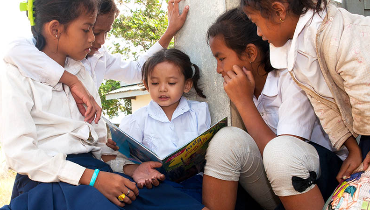
Learning to Improve Book Resource Operational Systems (LIBROS)
United States Agency for International Development | University of Notre DameThis is a part of the Supporting Holistic and Actionable Research in Education (SHARE), a five-year cooperative agreement with the University of Notre Dame (UND) supported by the USAID’s new Bureau for Development, Democracy, and...
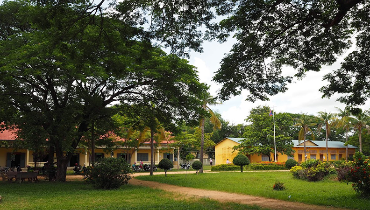
Thnal Udom Chomnes: Reimagining Future Education of Cambodia
The Asia Foundation | The Department of Foreign Affairs and Trade | Ponlok ChammesThe Covid-19 pandemic has brought about educational disruptions from pre-school to higher education in Cambodia and around the world. Although the impact of the pandemic in Cambodia was relatively low in comparison to other countr...
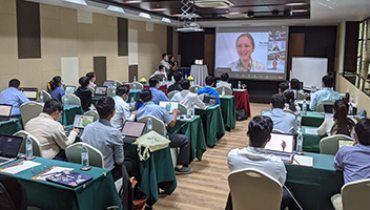
Thnal Udom Chomnes: Promoting Cambodian Higher Education Innovation
The Asia Foundation | The Department of Foreign Affairs and Trade | Ponlok ChammesThis three-year programme is supported by the Australian Department of Foreign Affairs and Trade (DFAT) through The Asia Foundation (TAF)’s Ponlok Chomnes Programme: Data and Dialogue for Development in Cambodia. In this programme...
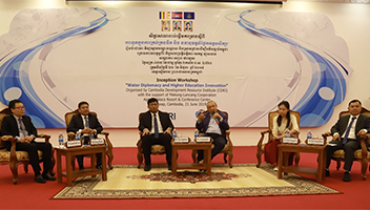
Building Regional Partnership for Higher Education Innovation
Lancang-Mekong CooperationWith a steady economic growth hovering between 7-8 percent over the past two decades, Cambodia achieved a lower-middle-income in 2015. Building on this progress, the government aspires to become an upper-middle-income country by 2...
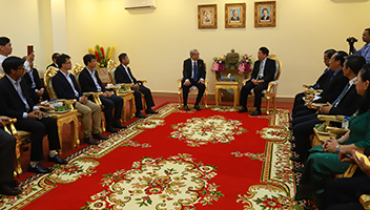
Research, Policy Dialogue and Capacity Building Programme on TVET
Swiss Agency for Development and Cooperation SwissCambodia has achieved strong growth in the past two decades, and the country has graduated to lower-middle-income status with a per capita income of about USD1,215 (2015). A feat that neighbouring Vietnam achieved in 2010 and Laos...
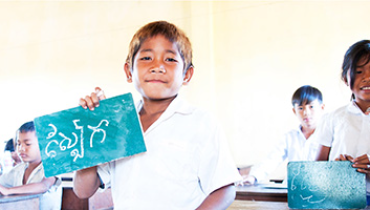
Education Research for Effective Policy Reforms
Swedish International Development Cooperation AgencyA five-year project called ‘Education Research for Effective Policy Reforms’ with a total funding of USD446,713 aims to produce independent, objective, high quality policy-relevant higher education research, and to maximise the ac...
There is no data list!

Closing the Information Divide: Addressing the Information Needs for Persons with Disabilities in Cambodia
Key Highlights In Cambodia, one in four people over five years old are estimated to have some form of disability. This group tends to be older, female, and residing in rural areas. The most common types of disabilities include difficulties in seeing, remembering, and walking/climbing. Education and work opportunities are limited, especially for women with severe disabilities. Their health and qual...

Negotiating Family and Personal Aspirations: Four Young Cambodian Women Reflecting on Choosing a Major
This qualitative study explores how four young Cambodian women navigated the decision-making process of choosing a university major, focusing on the influence of parental guidance and familial expectations. Drawing on in-depth interviews conducted as part of a broader anthropological dissertation, the paper examines how these women—Kravann, Samedy, Sophal, and Pheara—balanced personal aspirations...

The Reversal of Gender Gap in Learning: Why Boys Are Falling Behind in Upper Secondary Schools
This study investigates the reversal of the gender gap in academic performance in Cambodia’s upper secondary schools, where female students now consistently outperform their male peers. Employing a convergent parallel mixed-methods design, the research combines qualitative interviews and focus group discussions with quantitative surveys across 23 schools. Findings reveal that girls exhibit stronge...
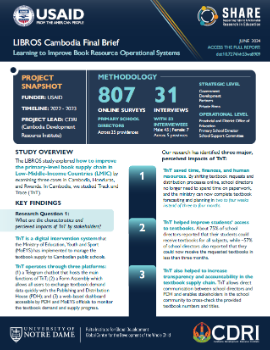
SHARE LIBROS (Learning to Improve Book Resource Operational Systems) Cambodia, Final Brief
This policy brief presents key findings from the technical report "Learning to Improve Book Resource Operational Systems (LIBROS) in Cambodia". The study examined the perceived impacts, development, and implementing factors of the Track and Trace (TnT) system, a digital intervention implemented by the Ministry of Education, Youth, and Sport (MoEYS) to manage the textbook demand of and supply to Ca...
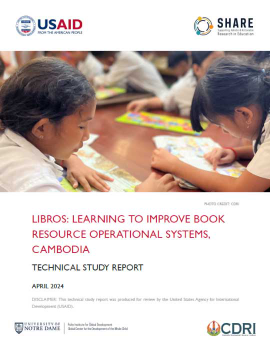
LIBROS: Learning to Improve Book Resource Operational Systems in Cambodia-Technical Study Report
Children in low-and middle-income countries often struggle to master foundational academic skills, such as reading, despite years of schooling. Quality learning materials are essential to addressing this issue. In this Learning to Improve Books Resource Operational Systems (LIBROS) study, we explore ways to enhance the primary-level book supply chain in these regions via a multi-method case study...
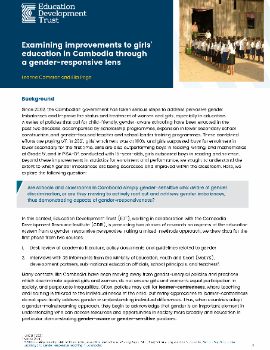
Examining Improvements to Girls’ Education in Cambodia Through a Gender-Responsive Lens
The Cambodian government has been successful in raising girls’ enrolment and academic achievement in recent years, with girls’ enrolment reaching 100% in 2021 and girls outperforming boys in reading, writing and mathematics at Grade 5 level. While this is hugely encouraging for girls’ education in the country, these statistics alone do not help us to understand the extent to which gender imba...
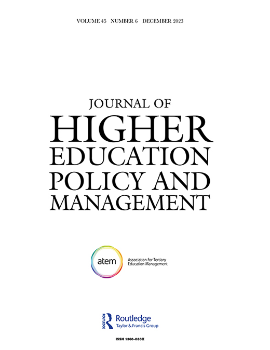
What Makes Academics (In)active in Higher Education Internationalisation: Evidence from Cambodia
This study explores the international engagement of academics and the factors influencing their engagement in internationalisation efforts in Cambodian universities. Data were gathered through online semi-structured interviews with academics and university administrators and later coded and analysed using reflexive thematic approach. The findings revealed that academics predominantly participate i...

Addressing All Learners’ Needs Through Gender-Responsive Pedagogy: The Case Of Cambodia
This blog post summarises key findings from recent research conducted by the Cambodia Development Resource Institute (CDRI) and Education Development Trust which investigates Cambodia’s journey toward gender-responsive education. Gender-Responsive Pedagogy, using FAWE’s (2018) framework, provides a lens for examining changes within Cambodian classrooms as reported in key informant interviews....
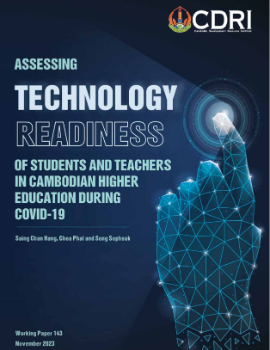
Assessing Technology Readiness of Students and Teachers in Cambodian Higher Education during COVID-19
This study examines the technology readiness of students and teachers in Cambodian higher education institutions (HEIs) during the COVID-19 pandemic, which forced a rapid shift to online learning. Using survey data from 370 teachers and 1,338 students across 22 HEIs, the study applies the Technology Readiness Index (TRI 2.0) to assess readiness levels and identify key determinants. Findings reveal...
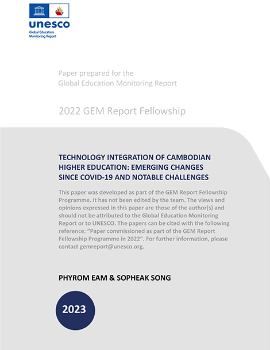
Technology integration of Cambodian higher education: emerging changes since COVID-19 and notable challenges
The second decade of the 21st century marks the time the Royal Government of Cambodia (RGC) officially directs the nation’s public sector, economy, and society to accelerate technology adoption and digital transformation. This present study aims to observe developments of such direction in Cambodian higher education (HE) sub-sector before and in response to Covid-19 by (1) examining policies and i...
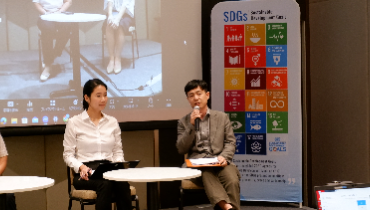
Fifth Stakeholders’ Meeting on Internationalisation of Higher Education in Asia and the Pacific
Dr Chea Phal, Director of the CDRI's Education Centre, participated as a panellist in the Fifth Stakeholders’ Meeting on the Internationalisation of Higher Education in Asia and the Pacific in Bangkok, which organised by UNESCO Bangkok and the University of Tokyo. This event aimed to promote understanding of the Sustainable Development Goals (SDGs) and the role of international higher education in Asia and the Pacific, facilitate dialogue amon...
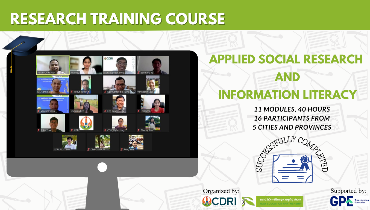
Research Training Course “Applied Social Research and Information Literacy”
On 15 December 2021, we concluded a 40-hour training course on “Applied Social Research and Information Literacy” for CSOs leaders based in Phnom Penh, Battambang, Siem Reap, Stung Treng, and Kampot.The training was jointly organized by Cambodia Development Resource Institute (CDRI) and NGO Education Partnership (NEP), with financial support from Global Partnership for Education (GPE). A total of 16 participants have strengthened their capability...
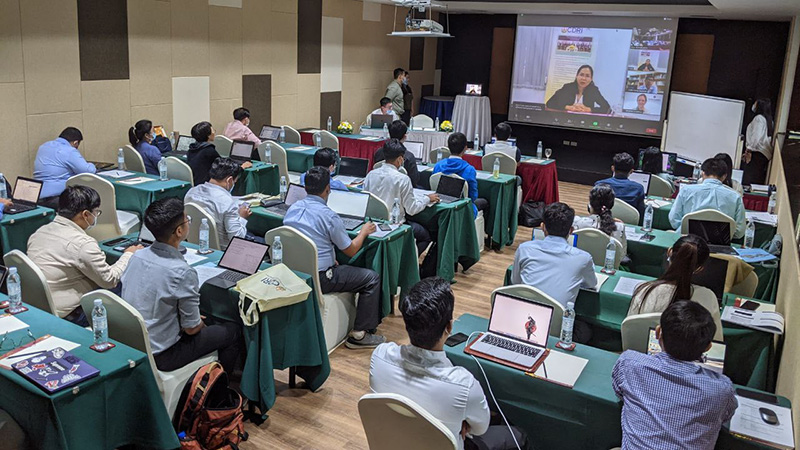
Training on Introduction to R for Quantitative Data Analysis
In collaboration with The Asia Foundation and under financial support from the Australian Department of Foreign Affairs and Trade (DFAT), the Centre for Educational Research and Innovation (CERI) has organizing a three-day intensive workshop on “Introduction to R for Quantitative Data Analysis” from 2 to 4 February 2021 in Siem Reap, Cambodia. Over 30 participants from universities, TVET institutes, research thinktanks, and government ministries...
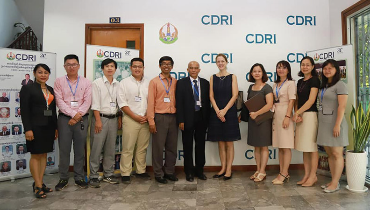
The Asia Foundation's Visit to CDRI
Thursday, 10 September 2020, Ms Meloney C. Lindberg, country representative of The Asia Foundation and Ms Heang Sophea, program manager of Ponlok Chomnes program, paid a courtesy call to CDRI. Supported by the Department of Foreign Affairs and Trade (DFAT), Australia, the partnership between TAF and CDRI focuses on research, policy dialogues and capacity development in higher education. Ongoing research projects in 2020 under this partnership inc...
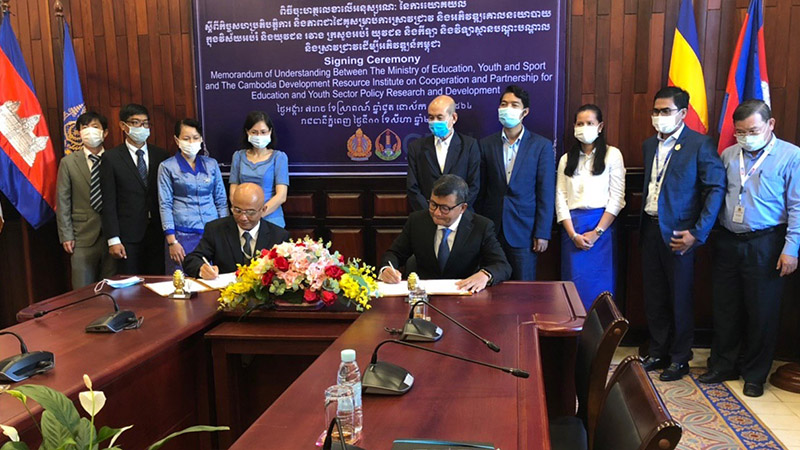
CDRI Signs MoU with MoEYS
In the morning, 11 August 2020, at the MoEYS, HE Dr. Hang Chhuon Naron, Minister of Education, Youth and Sport (MoEYS) and Dr. Pech Sokhem, CDRI executive director, signed an MOU on cooperation and partnership for education and youth sector policy research and development. The objectives of the collaboration are to support the efforts of MoEYS in pursuing inclusive and quality education for all by ensuring the accomplishment of the goals set out...
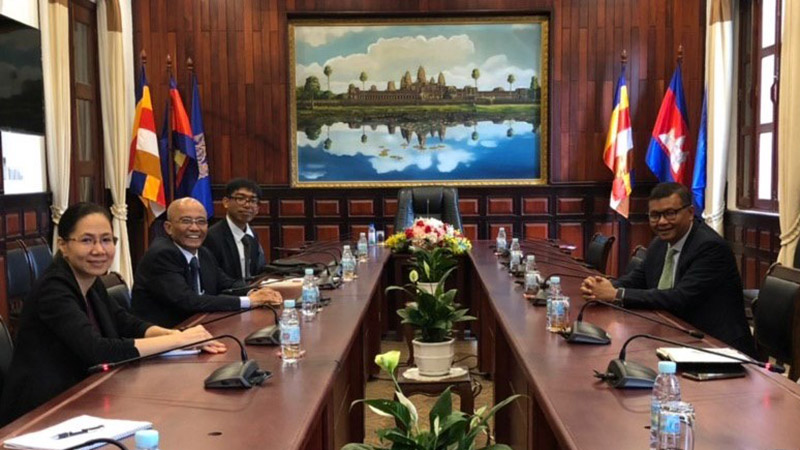
H.E Dr. Hang Choun Naron, Minister of MOEYS met with CDRI Executive Director
Tuesday, July 28, 2020, at 14.30-15.20, H.E Dr. Hang Choun Naron, Minister of MOEYS met with CDRI Executive Director, Research Director, Education Research and Innovation Center Director, and Senior Communication Officer to discuss the cooperation plan between MoEYS and CDRI in the education and youth research for development. H.E Minister shared his views and strategic focus on the innovative education and curriculum, e-learning, and skill asset...
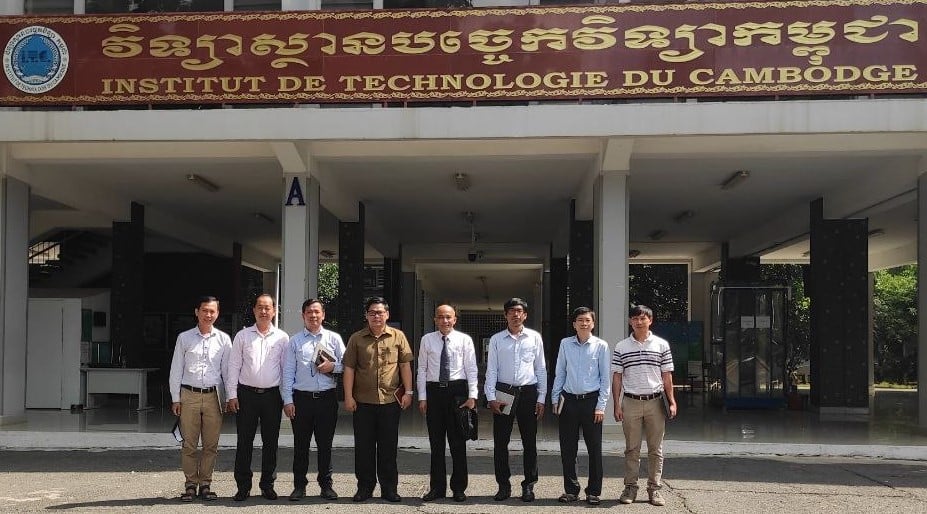
Director of the Institute of Technology of Cambodia
July 9, 2020 morning, the Director of the Institute of Technology of Cambodia, and senior ITC management met with CDRI ED and CDRI Director of Center for Educational Research and Innovation. The two institutes discussed the potentials for deepening the collaboration in skilled workforce development, Artificial Intelligence, and Digital Skill Needs and Labour Market.
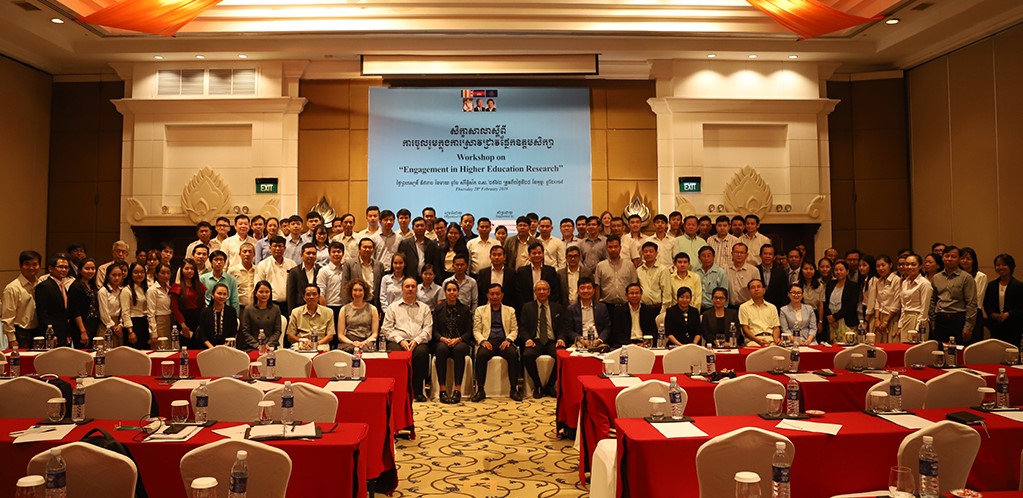
Engagement in Higher Education Research
Engagement in Higher Education Research was held on 28th February 2019 at the Great Duke Phnom Penh. The workshop concluded a three-year research programme on Higher Education Policy Research and Influencing in Cambodia (2016-2018) – the first development project cycle funded by the Department of Foreign Affairs and Trade (DFAT) of the Australian Government. It highlighted the higher education research findings on five key themes, namely (1) STEM...
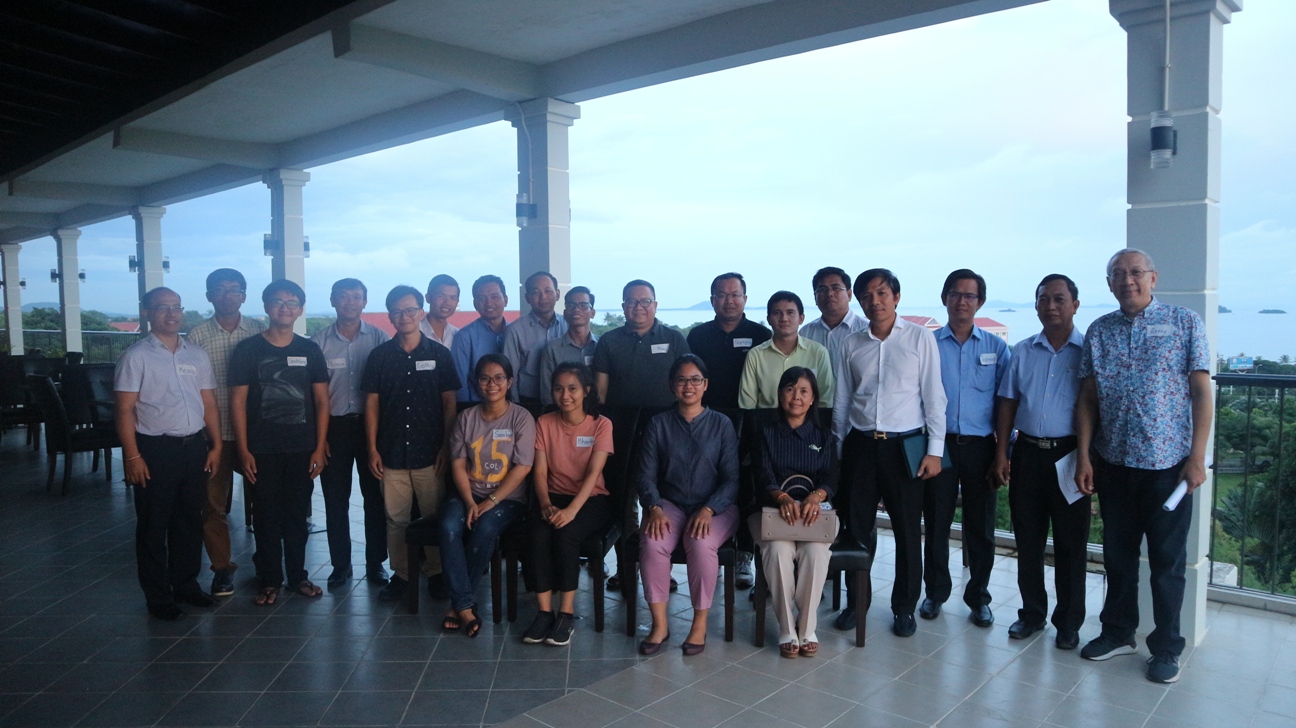
The March towards Industry 4.0: Skills for Industrial Growth
A high level meeting on “The March towards Industry 4.0: Skills for Industrial Growth” was organised to provide a platform to discuss future business development in some key sectors and skills demand and workforce training to support business growth and industrial transformation.Senior leaders of TVET providers and CEOs/HR directors from private sector had productive discussion on building partnerships and matching skills training with market nee...
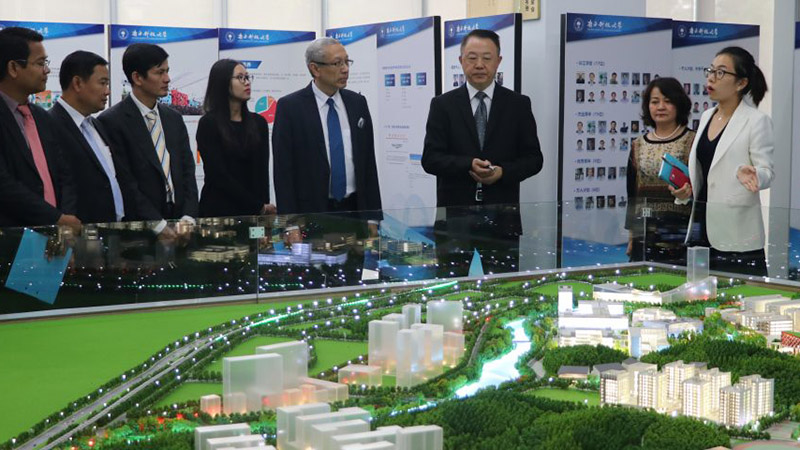
CDRI coordinates a field trip to Shenzhen in context of TVET policy research programme funded by SDC
Tour visit to the Southern University of Science and Technology of China. The Cambodian delegation is made of government officials, CDRI researchers, SDC (Swiss Agency for Development and Cooperation) program coordinator and private sector representative. 29 March 2018
